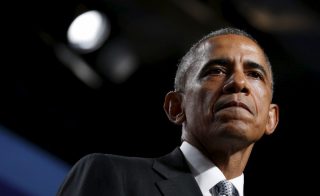“If we bag Trump, are we being mean to someone with psychological problems?”
This was a real question posed to me while the USA’s presidential campaign was hitting peak insanity in 2016. The questioner, in a fleeting moment of sympathy for what he interpreted as front and centre mental health issues in Donald Trump, contemplated whether he was being meanspirited by condemning his behaviour.
The guy’s not well, was his contention.

Herein lies a dilemma. Professional guidelines discourage mental health practitioners (e.g. me) from diagnosing those we have not dealt with personally. And of course, for those with whom we have dealt personally, we are bound by far stricter privacy protocols. We must never speak about them at all, unless subpoenaed.
Consequently, most commentary about the mental health of public figures such as Donald Trump is left to amateurs. Joe Public is free and clear to propose whatever diagnosis he fancies, so the world is awash with random opinions. Some are wildly off-target. Others are piercingly wise.
All the while, those who have good reason to know the difference feel muzzled into silence by professional properness.
So let’s look at it this way instead…
If the US presidency were a regular job
Criteria. Every regular job has criteria. Before inviting candidates to apply for a job, Occupational Psychologists draw up eligibility criteria. For example, an accountancy degree is required to apply for work as an accountant, or a carpentry certificate for a job as a joiner.
Then there are performance criteria. These are all about how competently a person will actually perform the tasks that their eligibility criteria qualify them to do.
Many performance criteria are behavioural. For example, taking a constructive approach to problem-solving, checking details, or being respectful with colleagues.
Performance criteria are absolutely critical, because it’s perfectly possible to secure an accounting degree but be a dodgy accountant in the real world, or to have a carpentry certificate but turn up late or act moody with customers.
Any schmuck can be President
The problem is that one of the grandest of all roles in the free world, President of the United States, doesn’t appear to have eligibility criteria, let alone performance criteria. Anyone can apply!
Finger on the nuclear launch codes? Got at least one (petite) finger? Great! Come on down, any and all.

Oh, as long as 50+ years ago your mother birthed you within certain latitudinal and longitudinal coordinates. Yep, as long as you had the correct geography at 40 weeks gestation.
Occupational Psychologists everywhere are pummelling their foreheads wildly at this point. The criteria used to select people into roles must be genuinely and substantially predictive of good performance in those roles. Otherwise you are wasting your time.
The locale in which a person was birthed is not one of those criteria. It predicts diddly squat that matters to actual performance as Leader Of The Free World 50+ years later.
As it stands, these are the meagre candidacy requirements for President of the USA:
ELIGIBILITY CRITERIA: Born in the USA
PERFORMANCE CRITERIA: [None]
Sigh.
OK, so let’s at least try to imagine what some proper criteria for the job of President, USA, could look like…
- Degrees (various) in law, economics and science for overseeing financial, social and environmental stability for hundreds of millions of people in fast-moving local and global economies, and, well, for understanding lots of really complicated stuff.
- A long record of ethical and value-adding decision-making in business or politics, preferably both. A candidate should be able to demonstrate considerable contribution to their community across time, with positive outcomes vastly outshining the occasional cockup.
- Higher order interpersonal and diplomatic skills. For example, the use of gracious and respectful language with people from all walks of life, listening well, and speaking articulately and persuasively.
- Disciplined, objective and fair-minded thinking. This is my personal favourite skillset, because it’s the foundation of true wisdom. There can be no more core skill for a president than the capacity to think objectively through complex or contentious issues, unencumbered by ego, bias or political pressure.
- Emotional resilience, balance and maturity. Being a senior politician garners a lot of disapproval. A very sturdy emotional makeup is needed to weather this. But too much sturdiness can make a person arrogant and unresponsive. That’s where balance and maturity come in. A higher order capacity for self-reflection is essential.
What about mental health criteria?
The business world is cautious about screening applicants for regular jobs in this way, and rightly so.
However, there are some professions in which mental stability is expected and essential. We demand that those in charge of our safety or wellbeing, such as educators, surgeons, police officers and pilots, have steady, rational and ethical dispositions. If they do not, there can be dire consequences.
We don’t allow scalpels, large Boeings, or our children, to be left in the hands of someone overtly unstable. So should similar mental health criteria apply to those wanting to become the leader of a country, whether in the US, here in Australia, or any other modern nation?
With my official Psychologist hat on, I nod a sensible “Yes” in response to this question.
In my off-duty baseball cap, I want to yell “D’ya think?!!” while rattling the asker by the shoulders.
Isn’t this all just too obvious?

The problem is that these requirements are so obvious to the reasonable mind — so Presidential Criteria 101 — that it might not cross enough reasonable minds to actually formalise them into law and practice.
Do we really need to document the ways in which candidates for the highest office should demonstrate that they are of sound mind, and intellectually and interpersonally high-functioning?
Do we really have to spell out that candidates must not…
- Break the law? e.g. Incite violence, assault people sexually, avoid tax, steal charitable funds, do dirty commercial deals for personal gain, or invade countries and kill people to get their resources.
- Display overt racial or gender prejudice?
- Lie compulsively or repeatedly?
- Bully, attack or censor those who criticise or disagree with them?
Can’t we just presuppose a higher calibre of candidate than this? Aren’t these primal, animalistic behaviours, which scream (at best) very low EQ, such obvious exclusion criteria? An applicant displaying any one of them wouldn’t make it to a second interview for an office administration role.
Egomania and narcissism
Among the biggest problems in politics, on par with corrupt self-interest, is out of control ego. This is a special difficulty in this profession because there are really only two ways to get to the top, and they profoundly clash with each other:
- Be earnestly and deeply committed to the good of society, highly capable, ethical, persistent, extremely resilient and have excellent interpersonal skills.
- Be irrationally driven by narcissism, ego fracture, sociopathy or similarly deep dysfunction that results in aggressive or empathy-deficient behaviour. They damage or destroy anyone perceived as an opponent, as well as, all too often, the very communities they are employed to govern and care for.
Many folk with disposition #1 will, at some point in their career ascent, resign to safeguard their sanity or their families from those with disposition #2. Only a special few make it through, holding their ground in the presence of bullies and psychopaths.
This is how the concentration of people with disposition #2 that we see at the top of large political and corporate hierarchies — how evil — is created. They end up largely unopposed, with a cascade of weak or ransomed lackeys beneath them to do their bidding.
If political parties were to implement performance criteria for their top teams like most organisations do, I wonder how different the world would look? Could we have prevented the disturbing and dangerous situation we are caught up in today?
Tell me your thoughts…
.
You really captured the conflict! As a psychologist with PTSD from a relationship with a partner who has NPD and continues to destroy lives, I can say this: don’t waste your time worrying about whether you’re hurting them because 1) you’re not and 2) they don’t deserve kindness. They wouldn’t hesitate to throw their own mother in front of a bus to protect their rapaciousness.
Report
Goodness, Patricia, you have been through the mill. Sympathy for the perpetrator in this case is not useful, for either party. Except perhaps as part of a strategy for you as a victim to eventually achieve something close to dispassion … after first getting the heck out of there, extricating yourself from his direct influence, and recovering from the acute trauma.
That is to say, who would want to be that person? What a miserable, limited way to exist in this wonderful world. Be glad to be who you are – a high functioning person with a dramatically better probability of having a truly satisfying and happy life than the perpetrator. He’ll have to wake up with himself every single day for the rest of his life, the poor thing. You no longer do.
Report
Love love love this article! So many good points and yes it’s all so obvious isnt it.
Report
So glad that it’s hit a spot.
Report